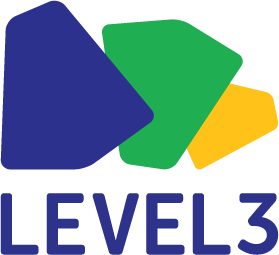RYTLE's Tushar Desai on customising business strategies for the innovative space in Singapore
In his early days, RYTLE's co-founder, Tushar Desai, recalled that being born in an entrepreneurial part of India where they live by the adage ‘if you have to work for someone, it means you couldn’t succeed on your own’, did much to spur his entrepreneurial spirit. Caught between a long-held cultural of studying for either a medical or an engineering degree - the only two choices 'worth anything' back in the day, he chose the latter and moved to the States to complete his MBA. While he was a corporate man for 15 years, he knew he was going to do something on his own, one day.
He reminisces upon his startup journey with much gusto, in which he delves into the happenstance that caused the collaboration between himself and Arne Kruse (a European entrepreneur), one of the other co-founders of RYTLE. "Arne's company manufactures eco-friendly pedalec (pedal-electric) cargo bikes & trikes (three wheeled cycles), used for short-distance deliveries. I also run a consulting & analytics company which led me to co-found a start-up with Amit, a tech and software guru, where we built a tech-based solution to enable businesses to identify people and things in a physical space with a view to enhancing the in-premise experience."
In effect, Tushar, Arne and Amit, along-with a global transportation manufacturer, decided to join forces to create a solution which combines the unique strengths of each (which, individually, could be considered somewhat classical), with one solitary goal: the creation of a flexible solution that could transform the Last Mile Fulfilment (logistics) industry in today’s digital age, via a revolutionary IoT-enabled Infrastructure as a Service.
Taking into account the European Union's increasingly stringent environmental legislation, the team realised that 'going green' and abandoning the use of fossil fuel-powered vehicles was about to become the next big thing across European cities. This set the ball rolling for RYTLE , acquainting them with predictive measures and larger-than-life ideas. "We were aware that this was happening and about to become commonplace, and didn't want to wait for a government announcement before we took action," Tushar explained. "We wanted to get ahead of the curve and offer a solution ahead of its time."
A B2B-focused solution, RYTLE utilises a micro-hub concept, where modern cargo e-trikes (dubbed MOVRs) are used to fetch smart boxes with parcels pre-loaded into them, from each micro-hub - dozens of which would be set up within a city - and transported to make door-step deliveries. Since each of the individual modules - Micro-hubs (the size of only two car parking spots, can be raised and/or lowered automatically, can accommodate nine smart boxes), MOVRs, and Smart Boxes are IoT-enabled, they can be fully linked up with the RYTLE platform, giving the business real-time tracking of air quality, heat/ humidity, road conditions, traceability and regular status updates.
...
GOAL FOR SINGAPORE
Singapore is one of the most innovative cities, with the government putting a tremendous emphasis on being a Smart Nation. Tushar sees a two-pronged approach for Singapore, "While we primarily plan to offer the RYTLE infrastructure as a service, we could also offer the data generated by RYTLE as a service. Having said that, RYTLE can also be taken in modular form. For example, if a courier/ logistics company is one of RYTLE clients, it could easily ‘rent’ the MOVRs and the smart boxes only. If they already have their own software platform in place, they may not require the RYTLE platform to aid them in their offerings. Other prospective industries in Singapore could be e-commerce companies, shipping warehouses, SingPost, wholesaler to retailer, warehouse to store deliveries, etc."
BEING GREEN IS AN INTEGRAL PART OF THE SMART NATION PLAN
Being green is a concept that's more popular with the Europeans due to their way of life and legislature, but not so much with Singaporeans. Pivoting to suit the Singaporean e-commerce market better is crucial for RYTLE, simply because the little guys need help with their logistics needs too. Being B2B no longer means that we cater solely to the big businesses. Rather, aiding small e-commerce startups in their last-mile needs is important too. There are different things that RYTLE can offer Singapore, and we are completely open to evolving to suit the market needs.
IDENTIFYING GAPS IN THE WORLD TO TAILOR YOUR OFFERINGS
Take Europe for example: Though grocery-delivery services like Redmart and Honestbee are rampant in this country, they are ridiculously scarce in Europe. Online grocery shopping across most of Europe is complicated by their mandatory self-pickup, thus defeating the purpose of ordering online. Therefore, one of RYTLE prospects could be to address Europe's grocery-delivery service, the same goes to identifying the rest of the pain-points that businesses around the world may face.
BE CONTEXTUALLY AWARE
Tushar urges startups to get familiar with the business context/ nuances, else you learn things the hard way, "In my analytics and tech-based startup, we were sure that our customer-experience enhancement solution would be an easy sell to most businesses. However, when we actually started taking our solution to brands, we learnt that most of them were interested in only offering discounts through our platform, not in building loyalty. While there was unanimous agreement that improving the customer experience was essential for sustained success, it was seen to require a level of effort that they were just not willing to put in. This made us shift our thinking and future development roadmap."
Startups deciding on tailoring their offerings must, as a first step, start getting well-versed with an industry’s / market’s cultural needs, and readiness for the offering. Only by having conceptual clarity and contextual familiarity, can you then be liberated to make something good.
To know more: tushar.desai@rytle.com

